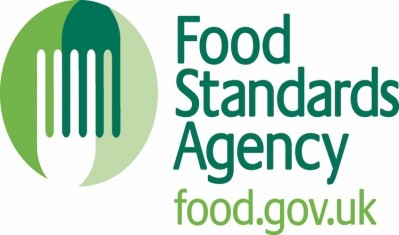Industry reacts to National Food Strategy

Tim Rycroft, Food and Drink Federation chief operating officer, said:
“We very much welcome the National Food Strategy Interim report today. In particular, we welcome the recommended measures which will help to increase access and affordability of food for children and families on lower incomes. We have long called on the Government to introduce a more holistic approach to helping people to eat well, including targeted measures for those who need it most.
“The report is a considered contribution to the debate about the future of the food and drink supply chain, and we are pleased to see the report’s focus on practical steps to promote recovery and, specifically, jobs.
“Food and drink manufacturing has risen heroically to the challenges of COVID-19. While COVID’s immediate impact is receding, it will have long-term consequences for the operating model and, in some cases, the viability of many food and drink businesses, particularly those in the hospitality industry, as well as those companies that supply that sector. It is therefore essential that any measures we now adopt must facilitate and not hamper recovery.
“While we agree with the more targeted measures set out in the report, we are disappointed to see that Henry has endorsed two of the policies set out in the Government’s obesity strategy – a proposed ‘9pm watershed’ for HFSS advertising and banning retail and online promotions of HFSS products. The Government’s own evidence shows these measures combined will only reduce a child’s calorie consumption by 17 calories per day. Such measures will also massively dis-incentivise manufacturers to bring forward reformulated, healthier options since, in many cases, they will not be able to be advertised or promoted to consumers.
“Our food system is highly successful in providing choice, convenience and value to the public and industry is rightly proud of this. We acknowledge that there are issues that need to be addressed and we are ready to play our part. We look forward to working with Henry Dimbleby, his team and DEFRA [Department for Environment, Food and Rural Affairs] in anticipation of the final National Food Strategy report in the coming months.”
Natasha Medhurst, scientific affairs manager at the Institute of Food Science and Technology (IFST) said:
"IFST is delighted that Henry Dimbleby acknowledges the resilience the UK food system has demonstrated in collaboratively managing to supply safe food to the UK population, despite the challenges the COVID-19 pandemic has placed on it.
"We broadly support the views expressed about our new freedom to exercise sovereignty through trade deals, that protect our high standards of food safety, animal welfare and environment. We also agree that any such deals should be subject to independent scrutiny by experts, in our case those issues relating to food science and technology, to ensure that there are no unintended consequences for the UK food system.
"Overall, we positively support a National Food Strategy to address the entire integrated, interdependent food system, which requires alignment across the UK.
"For consistent delivery, the food sector needs a framework to judge multiple impact factors across: sustainability, safety, authenticity, legal compliance, consumer preference, positive nutrition, affordability, and ethical welfare, to ensure the protection of the public and the supply chain. It will also require a paradigm shift in behaviour across its actors and stakeholders, as well as citizens, to establish the level of collaboration and cooperation needed to deliver effectively.
"In terms of immediate action, we support access to sufficient healthy food, and to skilled and unskilled labour resources, in the coming summer months as well as on-going, following the EU Exit transition.
"We look forward to supporting the work needed to create a UK-wide National Food Strategy fit for the future."
Minette Batters, president, National Farmers Union, said:
“Our farmers are rightly proud of the high standards they maintain. Now that the UK can pursue its own path through trade, it must ensure our environmental, animal welfare and safety standards are not undermined, so that our farmers can continue producing high-quality, sustainable food.
“This is why we welcome the recommendation to ensure new trade deals are subjected to a ‘gold standard’ of scrutiny that is independent, evidence-based, holistic and statutory. This would allow us to pursue new deals and enjoy the benefits of free trade, without sacrificing the standards and values which British farmers work so hard to uphold.”
Ellie Whitlock, policy and public affairs executive at the Chartered Institute of Environmental Health said:
“We are disappointed that Sir Henry Dimbleby has bowed to Government pressure and recommended a dual tariff approach instead of fully protecting food standards post Brexit.
"Allowing a dual tariff approach effectively means that food of a lower quality will still be allowed into the UK and some consumers will be exposed to hormone treated beef, pesticides that are currently banned in the UK and other harmful additives.
“This food may be clearly labelled in shops but this may not be the case in all restaurants and for prepared food. We are pleased to see so many big supermarkets committing to upholding our current high food standards. It’s a shame that the independent review of the food system has not done the same.
"We also do not believe the Trade and Agriculture Commission, which has no public health representation, is the appropriate body to define our core standards.
"However, we very much welcome the recommendation for a new independent commission to be established to assess the impact of all trade agreements, including impacts on food safety, public health and the environment. If the Government adopts this sensible recommendation, this is a big step forward. We also welcome recommendations around free school meals for all those on universal credit.”
Susan Jebb, professor of diet and population health, University of Oxford
“A nutritionally poor-quality diet is the leading risk factor for ill-health in the UK, yet we do not treat it with the same seriousness afforded to other risk factors. That has to change. The COVID-19 pandemic has been a wake-up call that obesity, in particular, increases the risk of suffering serious complications from the virus, but a poor diet also increases the risk of diabetes, heart disease and some cancers.
“This report makes clear the gravity of the situation and the stark inequalities that are evident across the food system. Children, particularly those from disadvantaged backgrounds, are disproportionately affected by the harms of a poor diet, and this sows the seeds of health problems in later life. Importantly, it sets out how we can help ensure that children have the opportunity to eat a healthy diet. Getting this right is a vital step to building a healthy future for the whole country.”
James Elliott, senior policy adviser at Green Alliance, working with the Greener UK coalition, said:
“The National Food Strategy’s first report has made a very significant recommendation at an important time: that we should protect food and farming standards in trade deals, only lowering tariffs on products that meet UK standards. While bans on certain products and methods are still needed, maintaining tariff barriers on sub-standard products has a vital part to play in protecting the nation’s health and environment.
“However, the new Trade and Agriculture Commission is not an appropriate body to define the standards that imports to the UK need to meet. It lacks transparency and representation of environment, consumer and animal welfare groups, and its recommendations are advisory only. This is not an adequate substitute for a safeguard on standards in primary legislation.”
Jo Whitfield, chief executive officer, Co-op Food, said:
“One of our main priorities is to help Co-op customers eat healthier, but we understand that at a time when finances are stretched, having access to fresh produce can be a struggle for many. I’m delighted we are able to support the proposed extension to the Healthy Start Initiative, which is a really positive step to help the most vulnerable in our communities, and we look forward to working with Jo Churchill MP and our fellow retailers to implement the scheme.”
















